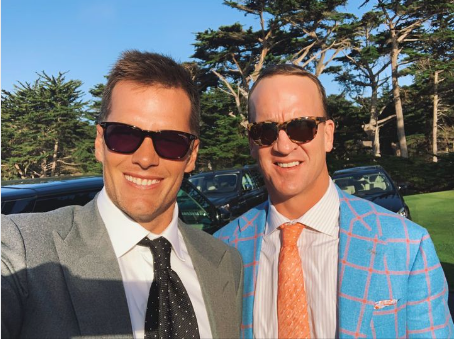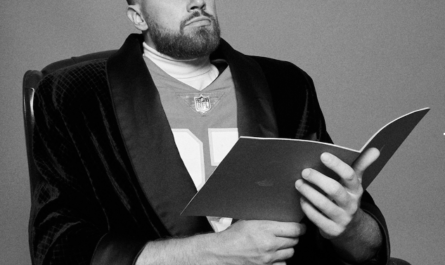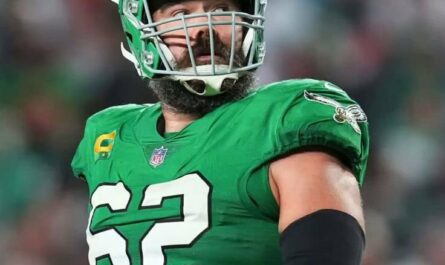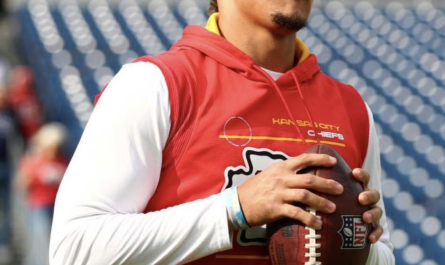Tom Brady and Peyton Manning: How Two Quarterback Legends Built Powerful Personal Brands
[bg_collapse view=”button-orange” color=”#4a4949″ expand_text=”Show More” collapse_text=”Show Less” ]
Tom Brady and Peyton Manning will long be remembered as two of the greatest quarterbacks to ever play in the NFL. Between them, they hold nearly every major passing record and have won a combined 11 Super Bowl titles. However, their impact extends far beyond just stats and trophies. Brady and Manning were also masters at using their platforms to cultivate powerful personal brands that translated their on-field success into lucrative off-field opportunities. While their approaches differed in some ways, both quarterbacks effectively leveraged their fame and reputations to become iconic figures both during and after their historic careers.
Winning Above All Else: Tom Brady’s Relentless Pursuit of Victory
From the beginning, Tom Brady established himself as a winner. As a 6th round draft pick in 2000, Brady was largely an unknown commodity until he stepped in for an injured Drew Bledsoe during his second season with the Patriots. Brady led New England to an improbable Super Bowl victory over the heavily favored St. Louis Rams, kickstarting one of the greatest dynasties in NFL history and cementing his reputation as a big-game performer.
Over the next two decades, Brady would continue defying expectations and delivering in clutch moments to cement his status as the ultimate winner. His record seven Super Bowl rings dwarfs all other quarterbacks and serves as the foundation for his personal brand. Everything Brady did publicly reinforced this identity as a relentless competitor who would do whatever it took to come out on top.
Even as he entered his mid-40s with the Tampa Bay Buccaneers, Brady refused to slow down. He led the Bucs to a Super Bowl title in his first season with the team, showcasing that his dedication to health, training and film study had kept him at an elite level far beyond what was considered possible. This late-career resurgence only added to Brady’s mystique and proved that with his approach, age was just a number.
Brady’s brand was built on an uncompromising commitment to winning and excellence. He avoided excuses and lived by the mantra that “championships are what matter most.” Everything else was secondary. This singular focus allowed Brady to defy odds and expectations time after time on his way to establishing himself as the greatest winner in NFL history.
Control and Mystery: Maintaining an Aura Through a Limited Public Persona
To maintain an aura of mystique around his brand, Tom Brady kept his public persona tightly controlled compared to his peers. He avoided oversharing details about his personal life and training regimen, letting his play do most of the talking. This created intrigue and prevented opponents from gaining too much insight into his process.
While other stars embraced fame, Brady came across more focused and business-like in his media appearances. He gave blunt and straightforward answers focused solely on football. This sterile public image fit his no-nonsense competitive approach.
By not overexposing himself, Brady prevented any potential missteps from chipping away at his pristine image. It also made his occasional commercial endorsements more impactful since he wasn’t constantly promoting products. Companies only gained access to the Brady brand when it aligned with his image as a winner.
This calculated level of distance added an element of mystique that was missing from more outgoing stars. It allowed Brady’s legacy to be defined predominantly by his play rather than his personality, reinforcing his identity as the ultimate competitor above all else. While some saw him as robotic, his brand resonated strongly with those who admired his singular dedication.
The “All-American” Face of the NFL
While Tom Brady built his brand on an image of relentless winning, Peyton Manning took a more multidimensional approach focused on traits beyond just stats and trophies. From the start of his career, Manning established himself as the prototypical “All-American” quarterback that both fans and advertisers loved.
He exuded intelligence, humor, leadership and good sportsmanship. Manning was articulate, well-spoken and always quick with a joke or funny quip. This made him extremely charismatic and easy to like. His personality also came across as incredibly genuine, down-to-earth and family oriented.
These traits aligned perfectly with Manning’s on-field production. He rewrote the NFL record books with his arm but was also a master at dissecting defenses from the line of scrimmage. This showcased his football IQ and added to his reputation as a cerebral field general.
Manning’s all-around likability, intelligence and clean-cut image made him extremely marketable to mainstream Middle America. He became just as recognizable for his commercial parodies as his prolific passing. This broad appeal translated into massive endorsement deals from brands like Nationwide Insurance, Papa John’s and Gatorade who tapped into his positive public persona.
While Brady focused inward, Manning actively engaged with fans and the media. His outgoing personality and willingness to poke fun at himself made him extremely charismatic and approachable. This added a sense of familiarity that resonated with audiences and positioned Manning as the friendly face of America’s favorite sport.
Leveraging Success Through Strategic Business Ventures
Unlike Brady who kept business matters private, Peyton Manning took a hands-on approach to utilizing his brand and actively participated in building business ventures. He launched the Manning Passing Academy, a football camp for high school players, as well as the Manning Cast, a Monday Night Football alternate broadcast with his brother Eli.
Manning also founded Omaha Productions, a media company that produced several ESPN 30 for 30 documentaries. He invested in numerous startups across industries like digital media, e-commerce and insurance. Manning took an entrepreneurial mindset to multiplying his wealth well beyond just NFL contracts and endorsements.
His intelligence and business acumen shone through in boardroom settings as well as the huddle. Manning understood how to leverage his assets and was a savvy self-promoter. He served as a spokesperson, consultant, adviser and investor, maximizing every opportunity.
This demonstrated Manning’s multidimensional brand went beyond athletics. He established himself as a thought leader, businessman and media figure, showing his appeal stretched across industries. While Brady focused on football mastery, Manning embraced diverse ventures that allowed his influence and income to grow exponentially post-retirement.
Humor and Self-Deprecation: Relatability Through Comedy
One area where Peyton Manning truly separated himself was his comedic talents. Beginning with iconic SNL sketches and Budweiser commercials, Manning parlayed his quick wit into becoming one of the funniest pitchmen in sports marketing history.
His commercial parodies spoofing everything from DirecTV to MasterCard took his persona to new levels of popularity. Manning poked fun at himself through exaggerated and over-the-top caricatures. He was never afraid to look silly or be the butt of jokes. This humility and self-awareness made him incredibly endearing.
Manning’s humor also shone through in his interactions with the media. He was never afraid to joke around or give funny answers in press conferences. His comedic timing and improvisational skills made any interview entertaining.
This relatable and down-to-earth approachability gave fans the sense that Manning would be fun to watch a game with or have a beer with. While Brady maintained an aura of invincibility, Manning showed it was okay to laugh at oneself as a superstar athlete.
This comedic flair became a massive part of his brand. It allowed casual fans who didn’t follow the NFL closely to still connect with Manning through his commercial parodies. His sense of humor made him a natural for post-retirement hosting gigs on shows like ESPN’s Manningcast.
Two Legends, Different Approaches, Similar Success
While Tom Brady and Peyton Manning took divergent paths in crafting their personal brands, both quarterbacks leveraged their on-field dominance into iconic statuses that transcended football. Brady built his brand on an image of singular focus, clutch performance and relentless winning above all else. Manning cultivated a multidimensional appeal through his intelligence, likability, business savvy and comedic talents.
Their approaches played to different strengths. Brady maintained mystique and control while letting championships define him. Manning embraced accessibility, charisma and diverse ventures. But both superstars understood the power of their platforms and maximized opportunities off the field.
Today, Brady and Manning are revered not just as two of the best to ever play the game, but as models for using sports fame to build lucrative and enduring brands. Their legacies will live on beyond stats and highlight reels through the cultural impacts they crafted through strategic brand-building. In the end, each cemented themselves as icons in their own right by understanding image, identity and the business of personal promotion.
[/bg_collapse]



